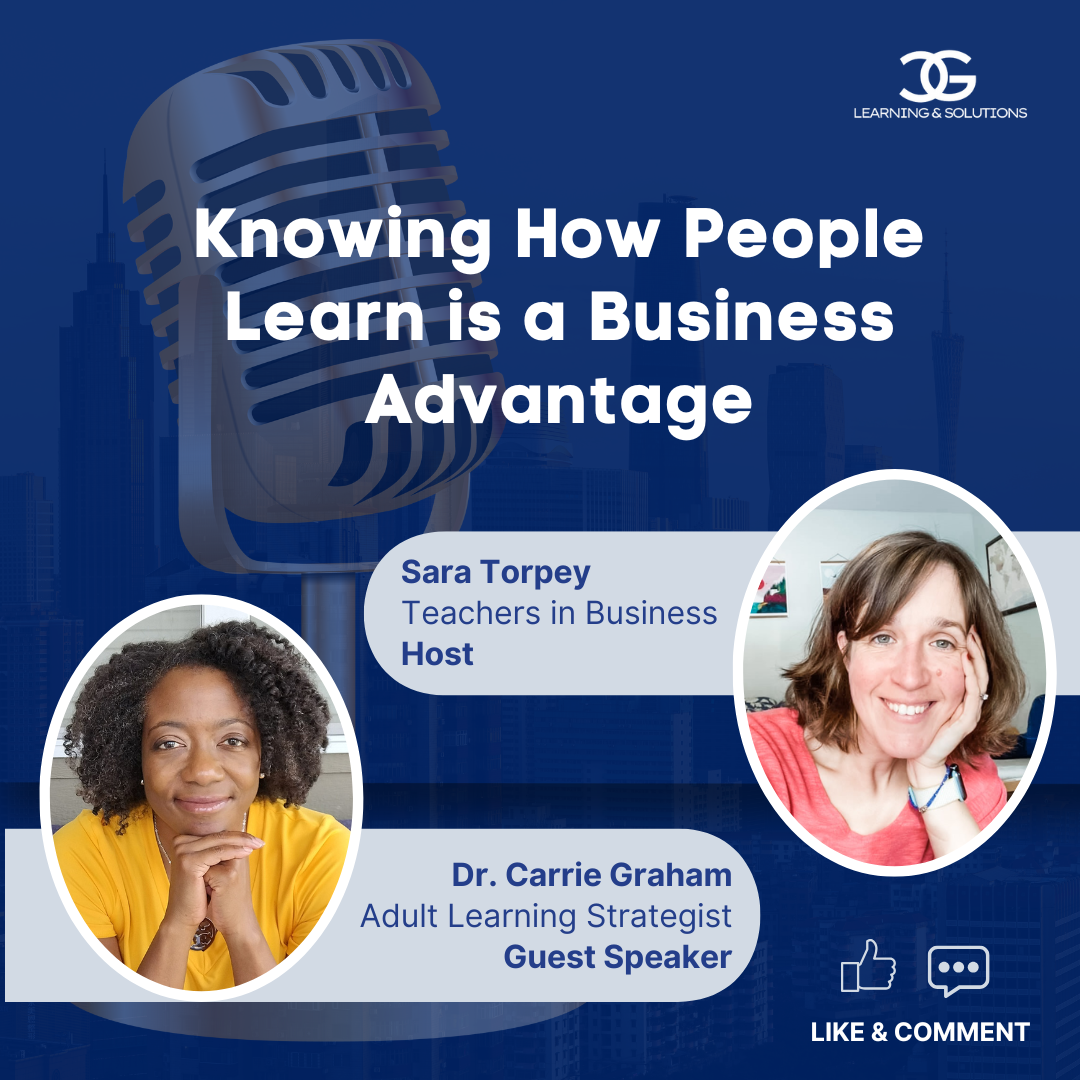Episode Overview
This episode explores the intersection of education and business, focusing on how to create effective learning experiences for adult learners in business contexts. Dr. Graham shares insights from her 25+ years in healthcare, higher education, and management, discussing the evolution from traditional teaching to facilitating meaningful learning.
Listen Here > https://youtu.be/VppuyJ03sCU?si=f-jbBkqYJaS3RL0u
10 Key Points
- Teaching vs. Facilitating: True teaching goes beyond information delivery - it involves listening to what learners say, don't say, or struggle to articulate, then asking strategic questions that help them move forward in their learning.
- Adult Learning Principles: Adults are problem solvers who seek learning experiences to address specific issues. They need focused, timely solutions that help them gain clarity in the moment, then allow them to apply and experiment.
- Small Learning Snippets Are Powerful: Brief, intensive learning moments often have more lasting impact than lengthy courses. Adults retain information better when it's emotionally connected and immediately applicable to their current needs.
- Story Placement Matters: When creating learning content, lead with stories rather than burying them deep in the material. Stories should focus on the adult learner, not just the instructor's experience.
- Know Your Learners Beyond Demographics: Understanding your audience means going deeper than basic demographics. Consider their experience levels, barriers to learning, and what knowledge they bring to the table - like guests at a dinner party with vastly different backgrounds.
- Business Ownership as Educational Freedom: Running a business allows educators to define their own standards, direction, and approach without jumping through externally imposed hoops - becoming both the "original voice and final voice."
- Technology Challenges Are Universal: Most educators transitioning to business struggle with technology, from social media algorithms to basic platform functionality. This is normal and manageable as you grow.
- Business Language Learning Curve: The language of business (funnels, lead magnets, SEO) can be intimidating, but it's simply learning new terminology - like how educators have their own jargon (curriculum, formative assessment, etc.).
- Asking for Help Is a Strength: In business, asking for help isn't a deficit - it's a strategic choice. You get to decide who to ask, when to ask, and can find people who actually understand and support your vision.
- Business as Journey, Not Destination: Approaching business as an ongoing journey rather than a race to a finish line reduces anxiety and allows for natural ups, downs, detours, and discoveries along the way.
10 Takeaways/Action Items
- Audit Your Teaching Approach: Shift from "information delivery" to "strategic questioning." Practice listening for what people aren't saying and asking questions that help them discover solutions.
- Restructure Your Content: Move compelling stories and examples to the front of your courses, presentations, or materials. Don't bury the engaging content two-thirds of the way through.
- Map Your Learner Profiles: Create detailed profiles of your audience that go beyond demographics. Consider their experience levels, potential barriers, and existing knowledge they bring to your content.
- Embrace Small-Batch Learning: Design shorter, focused learning experiences that address specific problems rather than trying to cover everything in lengthy courses.
- Limit Information Consumption: Be ruthless about cutting down on business advice, social media noise, and "how-to" content that creates overwhelm rather than clarity.
- Define Your Own Standards: Take ownership of your business decisions. You get to decide what success looks like, how you want to work, and what standards you'll maintain.
- Build Your Support Network: Identify areas where you need help (technology, design, marketing) and actively seek people who enjoy those tasks and align with your values.
- Create a Business Vocabulary Guide: Keep track of new business terms you encounter and translate them into language that makes sense based on your educational background.
- Practice the "Journey" Mindset: When facing business challenges, remind yourself this is just one chapter in your story, not the definition of your entire identity or future.
- Trust Your Problem-Solving Abilities: Remember that as an educator, you already have strong analytical and problem-solving skills. You will figure out the business aspects - trust the process and your own capabilities.
Resources
